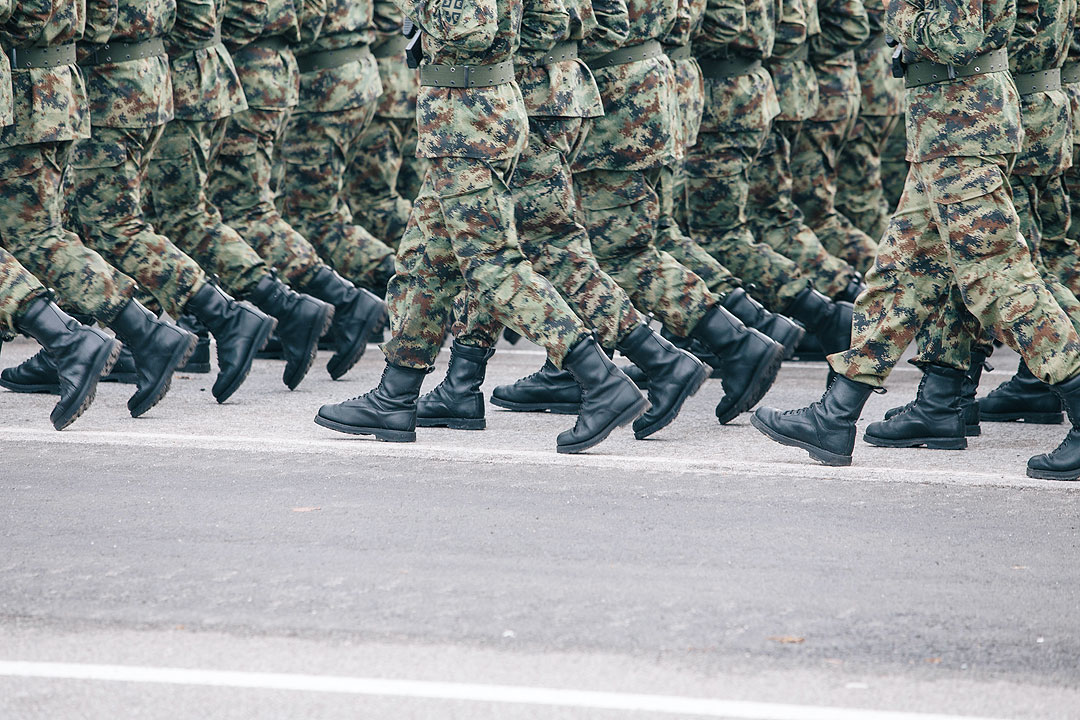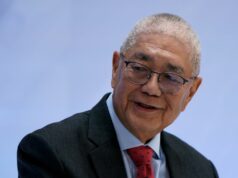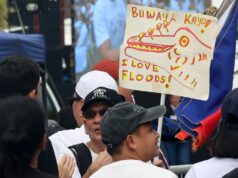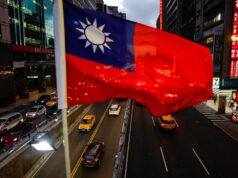Most Filipinos against military coups, says OCTA poll

MOST FILIPINOS oppose military coups as a means of settling political disagreements, according to a poll released on Sunday, showing strong support for democratic processes amid rising political tensions.
About 70% said they are against the Philippine military intervening in political disputes, according to an OCTA Research survey conducted from Sept. 25 to 30. Only 5% of respondents said they supported a military coup, while 22% remained undecided.
OCTA interviewed 1,200 adults for the poll, which had an error margin of ±3% points.
“The findings make it clear that any attempt by the military to settle or influence political disputes would not gain the backing of majority of Filipinos and would likely be met with broad public opposition,” OCTA said in a statement on Sunday.
President Ferdinand R. Marcos, Jr. is facing mounting pressure as his administration continues to be rocked by an unfolding controversy involving substandard, incomplete or nonexistent infrastructure in a country regularly battered by flooding.
There were reports of a coup plot against him that circulated on social media last month as thousands of Filipinos took to the streets in the biggest protests in years over the multibillion-peso flood control scandal.
Philippine military chief General Romeo S. Brawner, Jr. said in October he had rejected calls from retired generals — mostly critical of Mr. Marcos — who sought to rally the armed forces to remove him, amid simmering discontent over a public works controversy.
Opposition to military intervention in politics was highest in Mindanao at 79%, followed by the National Capital Region at 78%, the Visayas at 71% and Balance Luzon at 63%, according to OCTA.
Skepticism over the military’s role in government ran strongest among upper and middle-income groups, with 73% of Classes A, B and C and 71% of Class D opposing armed forces involvement. Disagreement dipped to 64% among Class E.
“These survey results reaffirm the strength of democratic norms in the Philippines and highlight the enduring commitment of Filipinos to uphold civilian and constitutional rule,” OCTA said, adding that “widespread resistance reflects both the enduring influence of democratic values and the collective memory of past authoritarian rule.”
The Philippines has a long history of coup plots, with more than a dozen military mutinies since democracy was restored in 1986, following the overthrow of the late President Ferdinand E. Marcos, Sr. in a popular street uprising.
Each succeeding president has seen the threat of a coup by disgruntled troops, with the government of ex-President Rodrigo R. Duterte having to deal with alleged plots to unseat him during his 2016-2022 presidency.
The last serious attempt to unseat a civilian government was in 2006, during the presidency of Gloria Macapagal Arroyo, but it was foiled by state security forces and led to the arrest of several military and police officials. A week-long national state of emergency was declared to quell the uprising. — Kenneth Christiane L. Basilio



